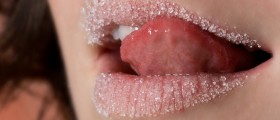
Sugar substitutes, also referred to as artificial, low-calorie, non-caloric or non-nutritive sweeteners are food ingredients which are made in order to provide an alternative to sugar consumption while still making food and drinks taste sweet. Smaller concentration of these products is needed for matching the sweetness that sugar brings. So, when it comes to helping people manage their weight, artificial sweeteners are one of the most common choices.
Sugar Substitutes and Your Health
Today, more than 50% of Americans have problems with their body weight, being either overweight or obese. This state of affairs increases the chances of these people suffering from hypertension, diabetes, heart disease and many different forms of cancer.
So, organizations like, for example, the American Dietetic Association say that low-calorie sweeteners can help the above mentioned people manage their weight better, controlling the glucose levels in their blood, while, at the same time, managing to avoid gaining more calories.
However, there is no miraculous way which can enable people to lose weight and people who desire to do this need to bear many other factors in mind, including a healthy diet and a physically active lifestyle. Yet, one is for sure – sugar substitutes can help.
If you stop consuming sugar, rest assured that just because a type of food contains sugar substitute does not mean that it is actually healthy. Many types of artificial sweeteners are known to be unhealthy and many times these can be found in products which are naturally rich in carbohydrates, making it impossible for one to lose weight while consuming them.
Sweet Flavor without the Calories
In order for a sugar substitute to be available on the market and inside the products we consume, it has to be approved by the FDA. Many types have gone through this procedure since the 1950 and, today, we have six sugar substitutes which managed to get the no-health-risk approval.
One of these is Saccharin and it has been around since 1958. It can be up to 700 times sweeter than sugar. However, this sweetener does not turn to glucose but, rather, it gets expelled through the kidneys, not adding a single calorie to our body. But, you are advised to keep your consumption amount of saccharin within 5mg per 2.2lbs of your body weight.
Due to the effects it has, saccharin is used by diabetics, possibly being added to cooked products. Nevertheless, when it comes to safety of this sweetener, there are a couple of issues you need to be on the lookout for. Most commonly used variants of saccharin are known to increase your sodium levels significantly. Moreover, health experts recommend that pregnant women should only take saccharin in moderation.
Aspartame, most commonly being related to controversy, is yet another type of sugar substitutes. It is 200 times sweeter than sugar and it is made from protein. Every single gram of aspartame contains 4 calories, which is the same amount that actual sugar has. Yet, you need much lesser amounts of aspartame in order to achieve sweetness equal to that of actual sugar. Aspartame is known to lose its sweetness when exposed to heat and many people claim that its taste is quite unnatural.
Keep in mind that people who have phenylketonuria cannot metabolize certain amino acids which are found in aspartame. Thus, these individuals should not consume food with this sugar substitute. Aspartame is commonly connected with health risks and unwanted symptoms, even though many of the claims have failed to contain adequate proof. Still, aspartame remains notorious for its potential health risks, even though many diabetics and food companies use it in a wide variety of food.
Acesulfame Potassium or Ace-K is yet another artificial sweetener, being 200 times sweeter than sugar. However, more than 90 studies have warned people to be careful with this sugar substitute since it can lead to health problems once used in any form exceeding moderation.
Sucralose is 600 times sweeter than sugar, passing through the human body without making any changes to it. Therefore, it is considered to be the best possible solution for diabetics and the most stable sugar substitute, being labeled as completely safe, according to the FDA.
Finally, Neotame and Stevia are the two sugar substitutes remaining on the FDA approved list. The former one can be up to 13,000 times sweeter than sugar, considered to be safe. Thus it is found in many types of food products we consume. Stevia, on the other hand, is about 300 times sweeter than sugar, also being considered healthy and without any unwanted or adverse effects,
Weight Management
As it was mentioned above, people who desire to lose weight can certainly benefit from artificial sweeteners, even though merely consuming these is not enough. Rather, one needs a steady exercising routine and a healthy diet eating low-calorie food while choosing the healthiest and most natural meals.
While diabetics need to balance their sugar glucose levels, they also need to stay active and eat healthy, using sugar substitutes as a tool for achieving this balance.
All in all, empty calories are not enough. Keep in mind that sugar substitutes are very useful. However, do not go overboard with them and do not expect the impossible. In order to maintain your proper weight and live with diabetes without problems you will need to incorporate a healthy diet and exercise plan into your life too.

















Your thoughts on this
Loading...